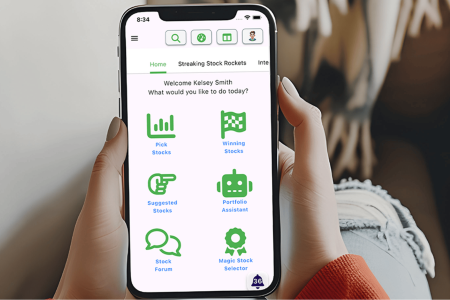Whether you’re flirting with the idea of relocating to be closer to grandchildren or thinking of scaling back because you need less space, leaving a home filled with a lifetime of memories may seem daunting. In addition to emotional consequences, downsizing your home also affects your financial well-being. Before you put that for sale sign in the yard, it’s best to weigh the pros and cons of downsizing. Then, if the move makes sense, you can establish a consolidation plan to make your transition a smooth one.
Is downsizing right for me?
The advantages of downsizing may include less yard work, housekeeping, maintenance, and repairs. It can also lower utility bills and real estate taxes, increase cash flow due to lower mortgage payments, and provide extra income from selling your current home. Another plus is moving to new accommodations that are more accessible or suitable to a retired lifestyle.
On the downside, moving is a lot of work, and letting go of possessions can be overwhelming. Adjusting to a smaller space can be hard, especially if you have frequent guests, and shifting your lifestyle can also be an uncomfortable transition. Moving to a smaller space may not always be the best financial option, depending on where you move and the value of the real estate when you sell. Your home may be your largest asset, so this is an important factor to evaluate.
What are my downsizing options?
As you search for a smaller home, consider the following most common options:
This is ideal for those who like owning their own home but don’t mind maintenance, climbing stairs, etc. Keep in mind that the financial benefit of moving to a smaller home will depend largely on the real estate market and how much you hope to make from selling your home. By planning the listing of your home well in advance, you can set goals with your real estate agent and avoid having to take the first offer that comes your way, no matter the financial repercussions.
Condos are an increasingly popular option for baby boomers, providing the advantage of ownership while eliminating maintenance. However, these services don’t come free. Monthly condo fees, including amenities offered, can add up quickly. If a condo sounds appealing, make sure you will use the amenities provided – otherwise, you may be spending money for nothing in return.
Also review any rules to condo homeowner’s association may impose on the community, including restrictions on pets, use of common areas, outdoor decorations, etc.
An apartment can be ideal for those that want the flexibility that renting affords. Renting can help eliminate almost all maintenance or tax concerns and provide a sense of community, depending on the type of building you choose. However, you will also lose the freedom to make many household decisions, as you do not own the property.
These include apartment complexes, condos, or even homes in a gated community that have an age restriction. Usually, residents must be age 55 or older to live within the community. This option offers many benefits, such as homeowner’s associations that take care of maintenance and landscaping, enhanced access to health care services, senior-friendly floor plans, and a strong sense of community. however, age-qualified communities will also enforce community rules and, in addition to the cost of the home or apartment, will usually charge monthly or yearly resident fees.
Consolidate possessions
A smaller space requires fewer furnishings and consolidating your possessions before the move will make the process much smoother. Making decisions about what to let go of can be empowering and give you a sense of satisfaction. For special belongings and heirlooms, downsizing can be the perfect opportunity to gift possessions rather than waiting to pass them on in a will. And gifting now instead of later allows you to experience firsthand the joy that your gift may bring to its recipient. You can also donate to charity or sell valuable items online, at a yard sale, or to a consignment shop. If you plan to move to a smaller living area, consider letting go of certain furniture pieces that may not fit a smaller space.
Enlist help
Moving is physically and emotionally draining. To help lighten the load, asking loved ones to help you sort through items can be a big help and provide a bonding experience as you uncover old memories hidden among your possessions. If you don’t know where to get started, consider hiring a “downsizing specialist.” These professionals often have a background in social work, health care, or psychology, and can help sort through possessions, arrange for sales, donations, or shipments, and guide you through this emotional transition.
This article was written by Advicent Solutions, an entity unrelated to AFS 401(k) Retirement Services, LLC. The information contained in this article is not intended to be tax, investment, or legal advice, and it may not be relied on for the purpose of avoiding any tax penalties. AFS 401(k) Retirement Services, LLC does not provide tax or legal advice. You are encouraged to consult with your tax advisor or attorney regarding specific tax issues.
© 2013 Advicent Solutions. All rights reserved.
Read the full article here








